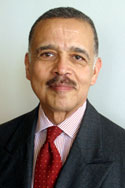ARCHIVES
OF EDITORIALS
April 14, 2005
Toward health insurance
for all
The growing cost of Medicare threatens the solvency
of the federal budget. Analysts assert that it poses a more imminent
crisis than the projected financial shortfall of Social Security.
Nonetheless, President Bush for philosophical reasons has focussed
his attention almost exclusively on Social Security.
As a result, the states have been left to solve the health care
problems themselves. In Massachusetts it is estimated that between
460,000 and 530,000 residents are not covered by insurance. All
of those without insurance are not destitute. Many working families
simply cannot afford the high cost of health insurance.
The indigent can be treated at no cost at the Boston Medical Center
and the Cambridge Hospital. The more affluent will be charged
at various hospitals for the cost of their medical care. Once
they are well the hospitals will try to collect from them the
cost of their treatment. A recent survey found that the expense
of medical care was the greatest cause of people seeking bankruptcy
protection.
While bankruptcy protects citizens from the bill collector it
does not provide the hospitals with the recovery of resources
spent on the care of the bankrupts. A better solution for financing
health care for all must be found. Senate President Robert Travaglini
and Governor Mitt Romney are both working on plans for comprehensive
health insurance.
Black leaders must stay in touch with Senator Dianne Wilkerson,
co-chair of the State Commission on Ethnic and Racial Disparities
in Healthcare, to be certain that African Americans are not ignored
in the final solution.
The new face of Catholicism
The death of Pope John Paul II has generated considerable
discussion about who will succeed him. In earlier times the question
was narrowly limited to Italian cardinals. Until John Paul II
from Poland ascended to the papacy, it was a foregone conclusion
that the pope would be Italian. The last non-Italian pope was
Adrian VI, a Dutchman, who served for one year from 1522 to 1523.
Now that Italian citizenship is no longer a job requirement, speculation
about the next pope has been wandering far afield. One reason
for this is that Roman Catholics have been successful missionaries
over the centuries. Now Roman Catholicism is no longer exclusively
a European religion. Two-thirds of those who profess the faith
live in Africa, South America and other Third World places.
There is considerable enthusiasm in Third World countries for
a non-European pope to be named. However, European cardinals still
hold the upper hand in the conclave. They have 58 votes compared
with 21 for Latin America and only 11 from Africa.
Nonetheless, Nigerian born Cardinal Francis Azinde has some support
among Catholics who know of him, and of course he is the hometown
favorite of many Africans. Some skeptics have asserted that an
African can never be elected pope.
Believe it or not, Cardinal Azinde would not be the first African
pope. There have been three others. St. Victor I served from 189-199,
St. Miltiades was pope from 311-314 and St. Gelasius I was pope
from 492-496. There is some debate as to whether all three were
black Africans. Only Miltiades is pictured as black. Paintings
of the others have a European cast, but the artists never had
the benefit of viewing the pope directly.
With the Roman Catholic Church reaching out to the whole world,
there seems to be little reason to rely exclusively on Italian
cardinals to serve as pope.
Home
Page

